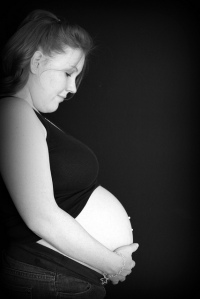This is “World Breastfeeding Week”…we know that breastfeeding is “Best for Babes” but not every mother feels that she can adequately breast feed and not every woman wants to breast feed. This being said there are many ways we can encourage women to breast feed and do so successfully.
The following article talks about ways that hospitals can encourage a new mother to breast feed. Many good points are made here…but ultimately the mom will be taking her newborn home after a very short stay in the hospital and the home atmosphere and home support will be the true test of success.
What we need is a “doula” of breastfeeding…a compassionate, educated, non-judgemental mom who is willing to help mother and baby get established in their breastfeeding routine together. This is not an easy task. There is no room for a fanatical breast feeding “doula” who imparts her successful breastfeeding stories and inadvertently guilt to the new breastfeeding mom. This relationship in my opinion can make or break a breastfeeding experience.
Hospitals can only do so much and since hospital experiences are so short for the new mom in many cases, it is my belief that for many reasons hospitals will never provide the support that is needed for success in breastfeeding.
A new mother’s ability to continue breastfeeding is influenced by what she experiences and how much support she receives during the first hours and days after birth. Breast milk is “the perfect nutrition,” says Frieden. It provides antibodies to help newborns ward off illness until the immune system can produce their own, which doesn’t happen until the infant is 6 months old. Mom’s milk also provides important hormones that help baby regulate how much it needs to eat. Plus, studies have shown that breastfeeding reduces diarrhea, ear infections and bacterial meningitis, as well as cutting the risk of sudden infant death syndrome, diabetes and asthma, according to the American Academy of Pediatrics.
The CDC report says breastfeeding for nine months reduces a baby’s odds of becoming overweight by more than 30%. For babies to get all of these benefits, the AAP recommends that infants should be fed only breast milk for the first six months of life and moms should continue to nurse while they start introducing solid foods until the baby is at least a year old, longer if mom and baby still want to.
In response to this report, the American Hospital Association tells CNN: “Breastfeeding is a personal choice and hospitals will follow the wishes of the mother, be it to breastfeed or bottle feed. There are numerous reaso
ns for the results and those include that hospitals can’t always accommodate a single room for maternity care and some mothers choose to send their babies to the nursery.”
There are of course other ways to help mothers continue to breastfeed. One came earlier this week, when the Department of Health and Human Services adopted recommendations from the Institute of Medicine, which will require insurance companies to pay for breastfeeding support, supplies and counseling, without any cost to the insured (aside from her regular insurance premiums of course), starting in August 2012.
via Hospitals need to do more to help moms breastfeed – The Chart – CNN.com Blogs.
“Best for Babes” is a wonderful organization which is totally on the right track in trying to assist the breastfeeding mom and baby. We need more involvement like this in order to promote successful breastfeeding. Here is the mission of “Best for Babes” for those of you who are not familiar with this organization.
The amazing health, economic and environmental benefits of exclusive breastfeeding for six months or more are well-established. Moms know this — they want to breastfeed. But sadly, very few of those who start or plan to start make it past the first few days — they struggle and suffer unnecessarily and give up, understandably, long before they intended to. Too often, it’s not their fault! They are being set up to fail by the very people and places that are supposed to help them — by the Booby Traps– the many cultural and institutional barriers that prevent them from achieving their personal feeding goals.
BFB’s mission is to help turn this situation around by bringing the power and influence of a consumer-driven, celebrity and corporate-backed, mainstream independent nonprofit –the Mother of All Causes –to bear on this issue; to help create permanent culture change that embraces, celebrates and supports breastfeeding and moms! As a nonprofit foundation, we serve and complement the heroic, long-term efforts of the existing breastfeeding community and we lend added value by being able to harness and leverage the collective power of celebrities, corporations, foundations, the public sector, advertising, the medical community and the media.







